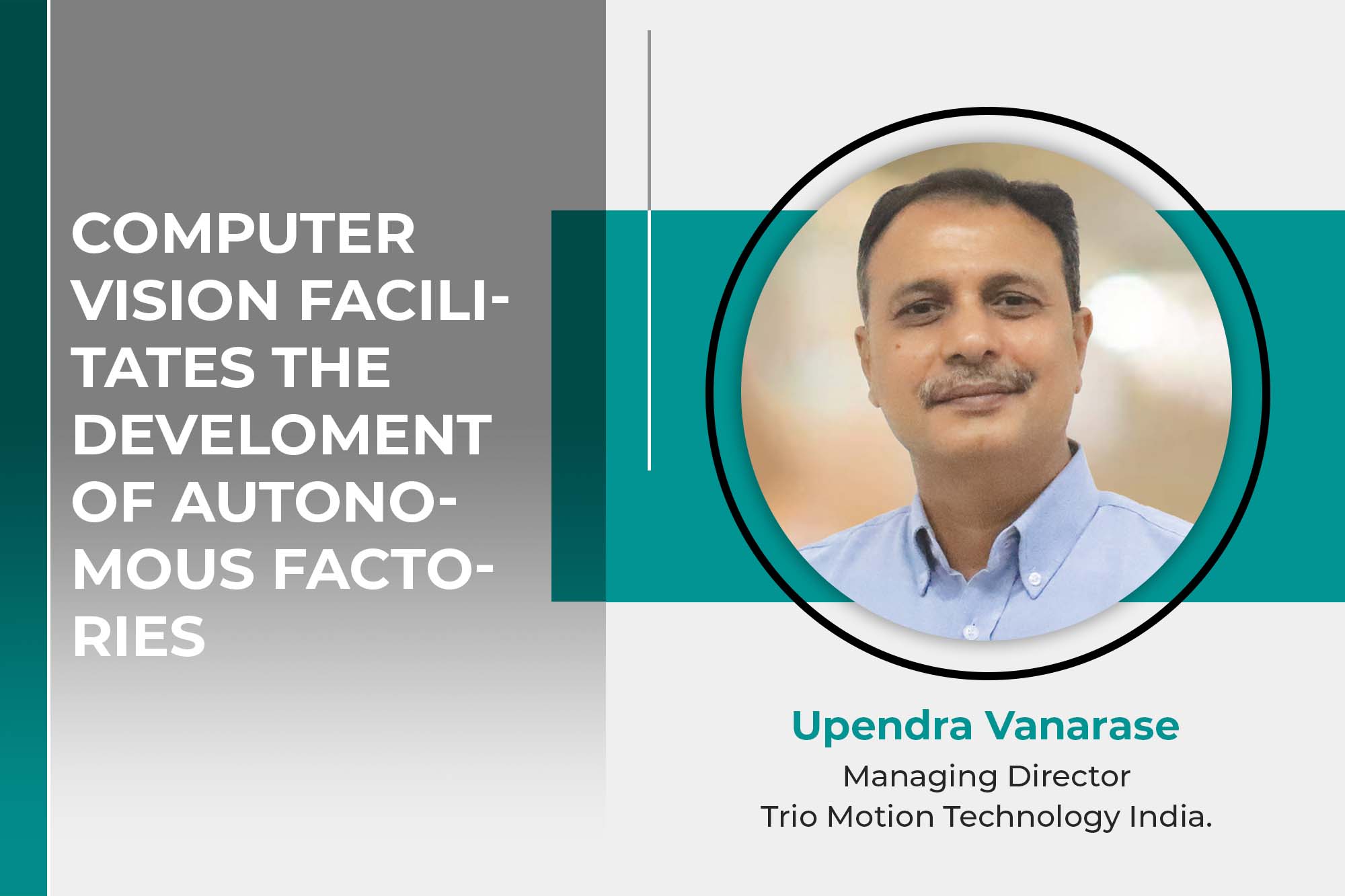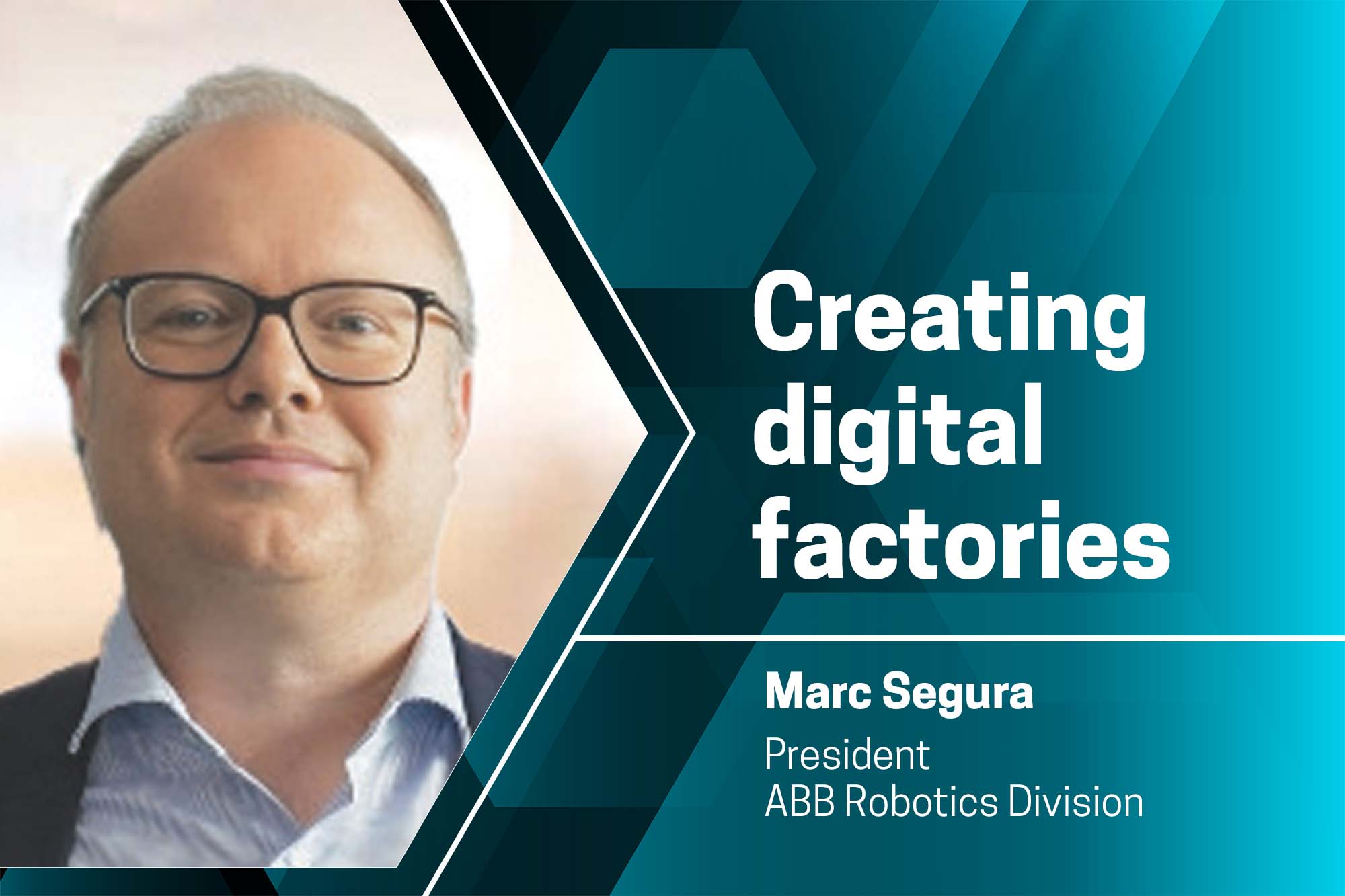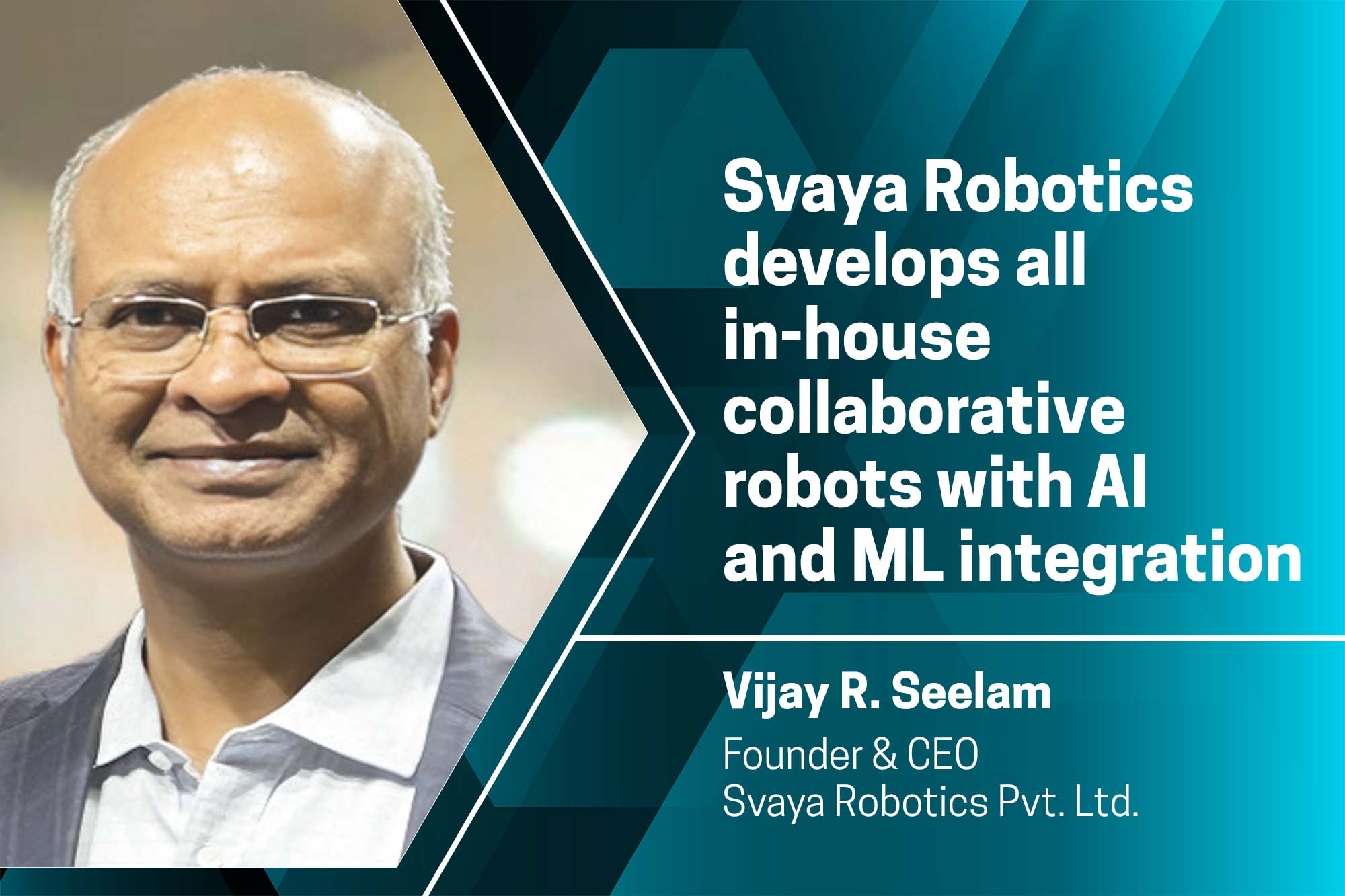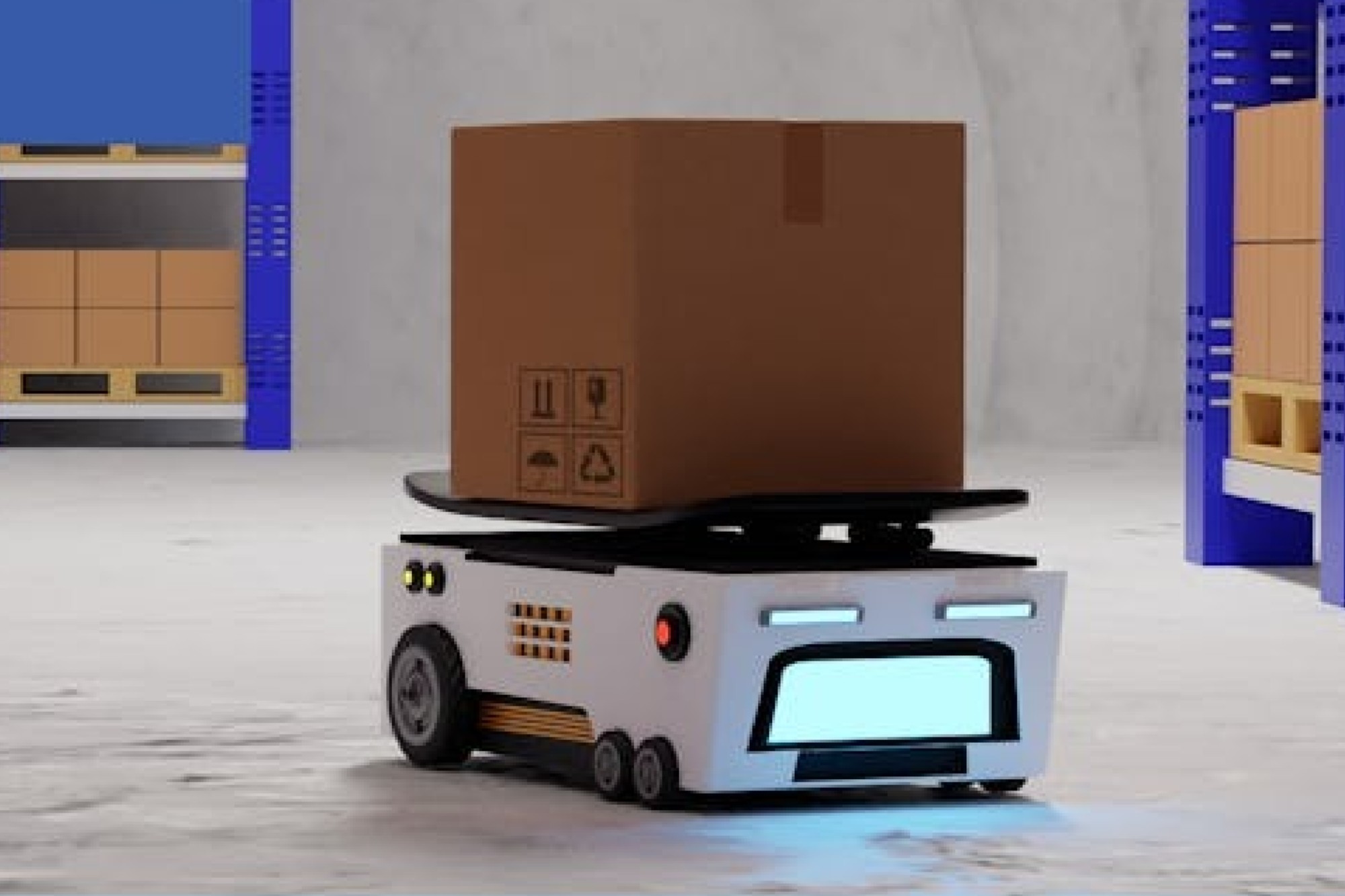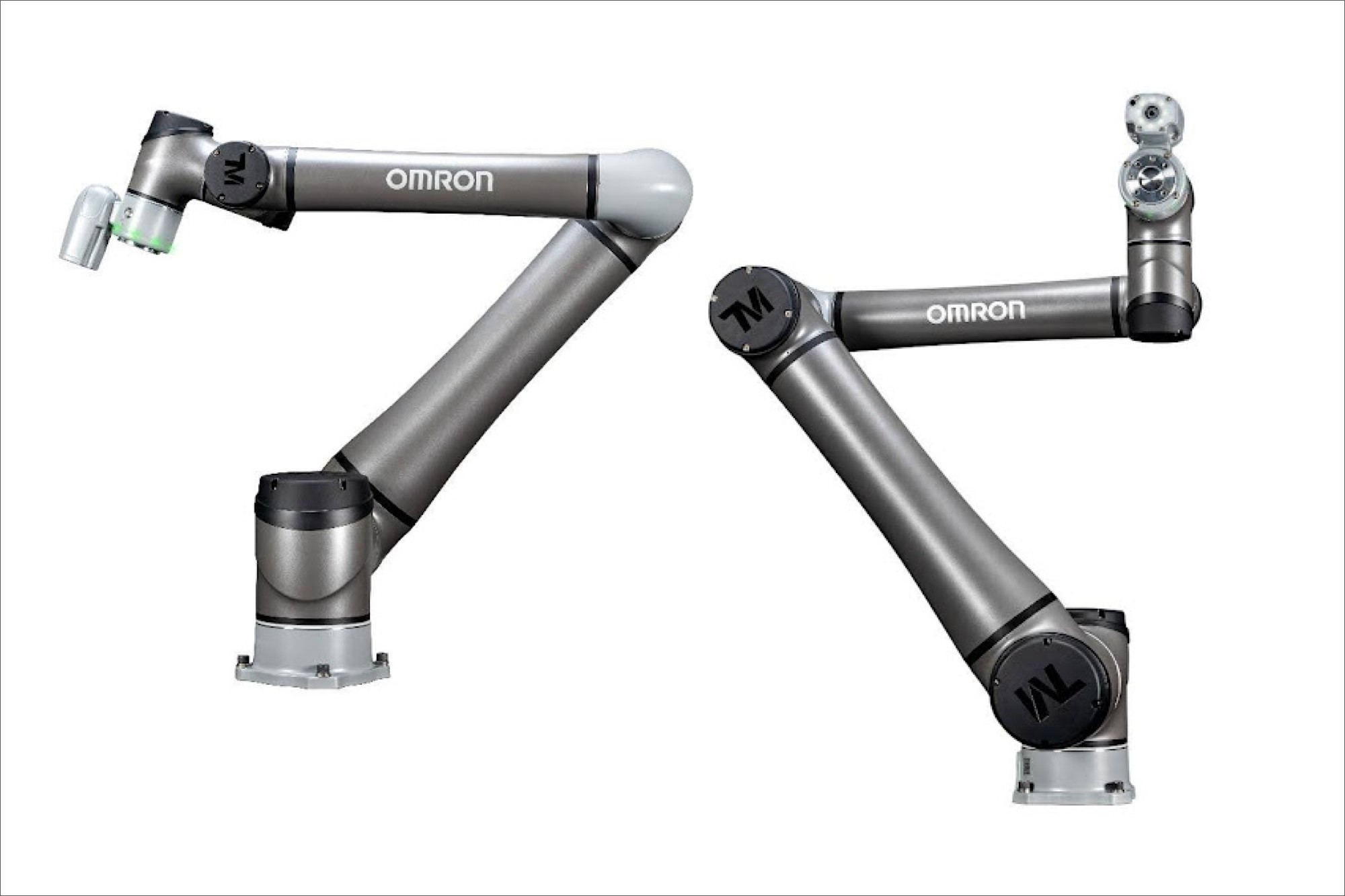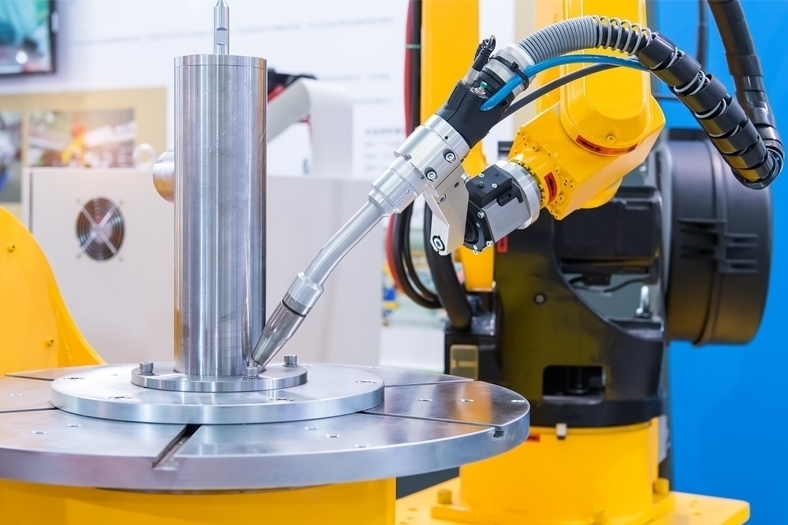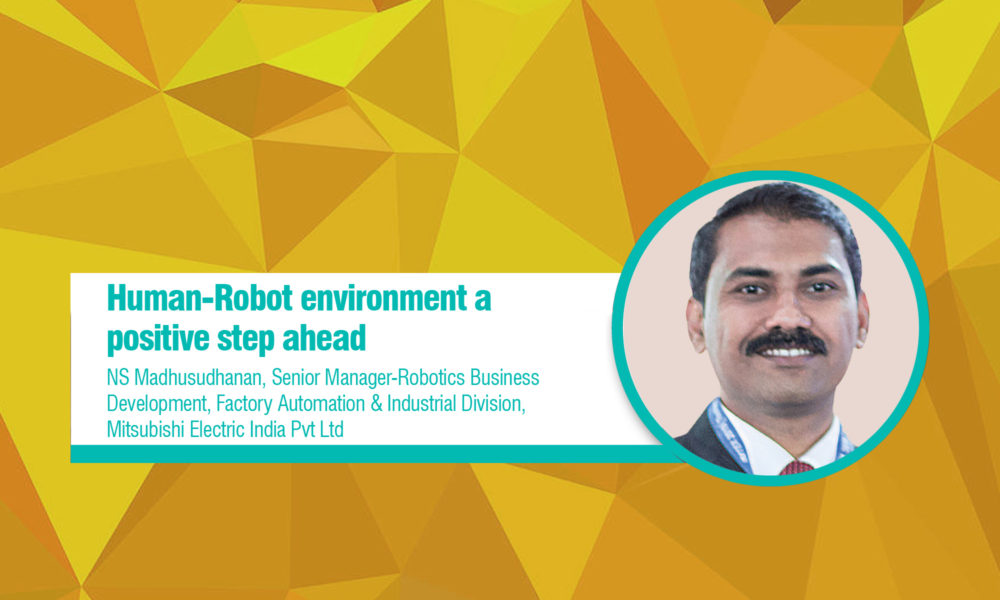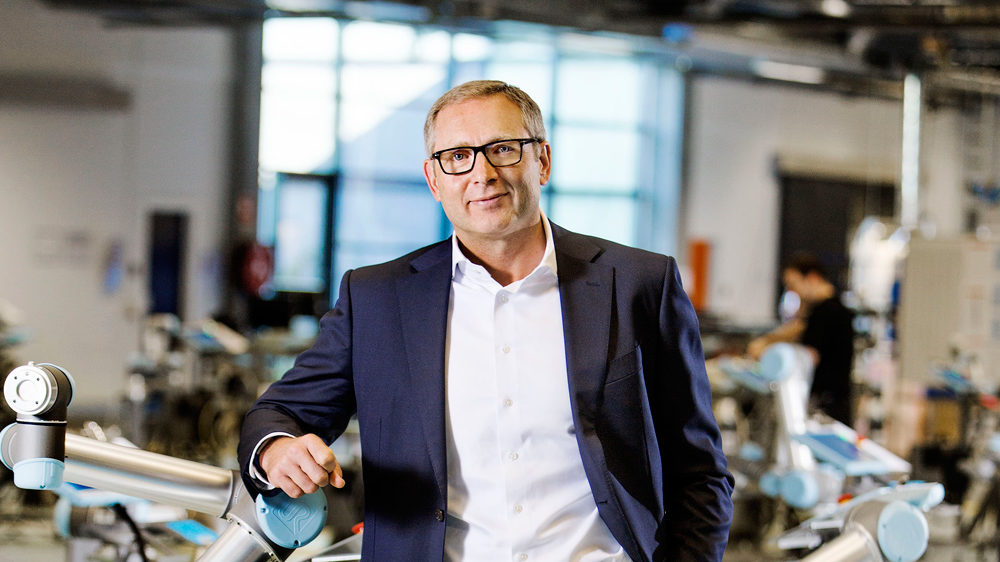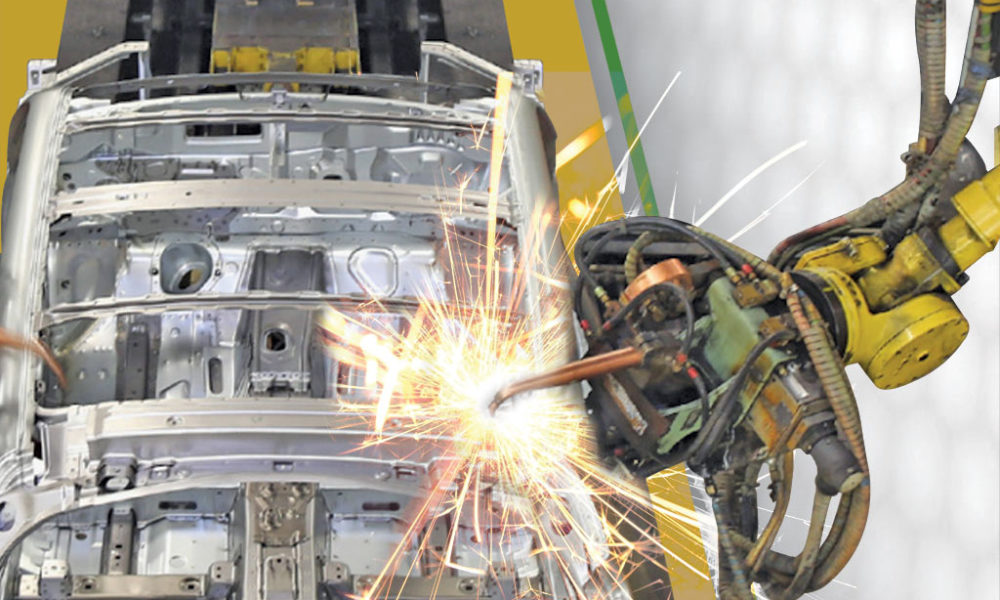Computer vision facilitates the development of autonomous factories
By Staff Report August 2, 2024 3:55 pm IST
Upendra Vanarase, Managing Director of Trio Motion, thinks incorporating robots, cobots, and advanced connectivity solutions such as IIoT and IoRT into manufacturing lines advances efficiency, productivity, and sustainability. Lightweight vacuum grippers and data insights from AI, IoT, and data analytics create Smarter and adaptive production environments, paving the way towards Industry 5.0.
Please suggest ways to leverage robotics to adapt to trends and the factors driving the robotics market for industrial automation.
Modern manufacturing demands highly adaptable and scalable systems capable of quick changeovers and minimal downtime. Manufacturing plants are exploring and deploying next-generation technologies such as AI and ML for higher efficiency and productivity. Adding robots and cobots to manufacturing machinery and lines improves efficiency and productivity. Similar is the case with AMR and AGVs in the end-of-line and warehousing applications. Both approaches reduce the dependency on human labour and make manufacturing more economical and energy efficient. Sustainable production has become essential, and deploying robots and cobots is helping manufacturing setups become greener and energy efficient.
How does vacuum technology address the challenges of lightweight and quick-to-integrate grippers for cobots during production?
The primary reason for deploying robots and cobots on shop floors is to improve production efficiency, speed, throughput and productivity. Owing to minimised mechanical complexity and reduced weight, vacuum technology has gained prominence in robots and cobots. However, its selection needs to be accurately made depending on the nature and weight of the product that needs handling. The vacuum suction enables the manufacturing lines and machines to handle a variety of materials and products without the need for multiple specialised end effectors, thus streamlining the integration process. Vacuum grippers can quickly adapt to products of different shapes and sizes, providing the versatility that the dynamic production environments require. The vacuum technology is easier to maintain and less prone to mechanical failure, ensuring higher reliability and uptime. The simplicity of vacuum technology allows for rapid installation and reconfiguration, which is crucial for maintaining flexibility in production lines that frequently change tasks or products. With Trio’s Motion-First approach, machine builders and factories benefit from the ease of integration of vacuum technology on customised grippers.
What role does IIoT connectivity play in facilitating data sharing and learning in industrial operations?
IIoT connectivity enables horizontal and vertical connectivity in plants by interlinking machinery, sensors, and robots to enable data collection and analysis across factories. Having data available centrally in a manufacturing plant enables the translation of this data into valuable information. Moreover, this exchange of data and information is in real-time and is accessible to all stakeholders on their mobiles anywhere across the globe. However, this seamless data exchange is only possible with open networking protocols on the machine and plant level. Manufacturing plants use this information to monitor raw material consumption, machinery failure or energy usage trends and take necessary actions to avoid unplanned downtimes.
Predictive maintenance is one example showing the benefits of learning and actionable insights to avoid downtime and extend equipment life. This learning and information also support process optimisation by providing immediate feedback and enabling quick adjustments to production parameters. This enhanced data visibility creates collaboration across departments, improving decision-making and efficiency. Moreover, IIoT connectivity allows remote monitoring and control to address issues promptly regardless of physical location.
How do AI, IoT, data analytics and computer vision influence industrial automation?
AI, IoT, data analytics, and computer vision integration are revolutionising industrial automation by creating Smarter, more responsive, efficient, productive and sustainable manufacturing environments. AI enhances predictive maintenance and process optimisation through advanced algorithms that learn from historical data and ongoing operations. IoT provides the connectivity necessary for real-time data exchange, ensuring seamless communication between devices and systems. Data is rendered useless without converting it to actionable information. Thus, data analytics transforms vast amounts of raw data into actionable insights, allowing for more informed decision-making and strategic planning.Computer vision enables precise and high-speed inspection, quality control, and robotic guidance, reducing errors and improving product consistency. If all these systems are deployed in factories together, they facilitate the development of autonomous factories capable of adaptive learning and self-optimisation, ultimately driving greater productivity, flexibility, and innovation. Trio Motion helps machine builders leverage all these technologies on a single controller for IIoT and real-time motion applications.
What potential does IoRT hold for transforming the manufacturing industry?
Machine builders combine robotics with advanced connectivity and data processing capabilities to transform manufacturing. IoRT enables robots to communicate and collaborate, as well as with other systems and humans, in real time. Manufacturing plants benefit from enhanced operational efficiency, flexibility, and responsiveness to changing production demands. IoRT-driven automation can optimise workflows, reduce downtime, and improve quality control by leveraging real-time data, AI, and ML.
Additionally, IoRT facilitates the integration of advanced technologies like AI, IoT, and edge computing, creating intelligent and adaptive manufacturing environments. The focus is shifting to human-centric automation, where IoRT plays a vast role in enhancing human-robot collaboration, ensuring safety, and augmenting human capabilities. This convergence is making manufacturing processes more sustainable, resilient, and innovative.
What future do you see for AI and robotics for Smart factory solutions?
Robots, cobots, AI, and machine learning have seen exponential growth in manufacturing plants and will continue to grow in the coming years. Packaging, F&B, pharmaceutical, and warehousing are industries where opportunity is marked by increasing intelligence, autonomy, and integration.
AI is advancing to enable more sophisticated predictive maintenance, process optimisation, and real-time decision-making. Robotics will become more versatile and collaborative, working alongside human operators in intuitive and safe ways.
Trio’s E-Robot is an example of versatility and innovation in the field of robotics that enables machine builders to experience unparalleled efficiency and precision. The synergy of AI and robotics leads to fully autonomous production lines capable of self-optimisation and adaptive learning. Integration with other technologies like IoT, big data, and edge computing will enhance connectivity and data-driven insights, creating a seamless and responsive manufacturing ecosystem. Trio’s Smart automation solutions help machine builders integrate next-generation technologies in machines, increasing efficiency, reducing waste, achieving higher product quality, and driving competitiveness and innovation. Additionally, sustainability and energy efficiency will see AI and robotics playing a vast role in developing greener manufacturing practices.
Cookie Consent
We use cookies to personalize your experience. By continuing to visit this website you agree to our Terms & Conditions, Privacy Policy and Cookie Policy.



